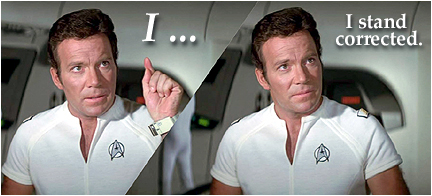I got this this theory in that is humans evolved to much to a point where they no longer really feel like human beings anymore. They say all the right things about earth being a utopia and humans being more evolved but that is also because they have no doubt been exposed to decade after decade of propoganda telling them how great they are.
Agreed. It's especially noticeable in the pompous speeches Picard and Riker make when they're wagging their fingers at anyone from the 20th century.
It also shows up their entertainment when all the music and holodecks adventures seem to always be from or set in more "primitive" times. It's kind of like nostiga on overdrive. They know most evolved humans can't create art like people from the past unless you move away from earth like a Jake Sisko. Quark once described earth as a "rotating ball of boredom" and I bet many humans also believe that as well.
"Art" on 24th century Earth is probably like an art class, where everyone is told to copy the bowl of fruit and not to be too individualistic about it. I'm reminded of when my grandmother - a self-taught artist whose paintings are all over my apartment - decided to take an art class at the local seniors' center. Her next painting was crap, and she said, "The teacher said to do it this way." I told her to forget what her teacher said and go back to doing it her own way, because her own way was far superior to what her teacher's way was. Her next picture was beautiful, and I've got it hanging on my living room wall about 3 feet from where I'm typing this.
I bet Tom Paris took holoprogram design to a brand-new level when he got back, since he had 7 years of not being inundated with what "civilized society" expected from artists, along with his experimentation with 20th century artistic forms that seem primitive even to the audience watching the show, and could be creatively free.
On Earth itself, they become bored and can't be creatively inspired if they're bored, so they look to the past. Following the "If it was 10 years ago, it sucks. If it was 20 years ago, it's retro-cool" rule and expanding on it to a larger scale, all pop-culture developed from the Mid-20th Century on was deemed as "it sucks" and everything before that was "retro cool". Except the 24th Century mindset did "it sucks" one better and said "not only does it suck, we've outgrown it."
The meta explanation, of course, is that they didn't want to use too much that they'd have to pay royalties for... therefore, you take your date to a Shakespeare play or a chamber music concert, rather than a rock concert playing recognizable 20th century music.
Why they didn't just create something new - and say it's from the 22nd century (or even the late 21st) - is beyond me. Maybe it was a matter of time constraints or budget.
STAR TREK's Humanity's dismissing Religion is the Causative Link betwixt that Universe's unhappiness and the world it lives in.
We have religion now, and we had even more religion decades, centuries, and millennia ago. Are we blissfully happy now? Were they blissfully happy then?
Nope. People are currently killing others now for following the "wrong" god, and in the time of Tudor England, you could be hauled up in front of the authorities just for not making the correct gesture at Sunday Mass. Mary Tudor didn't earn the epithet "Bloody Mary" for nothing. She vowed to rid England of non-Catholics, and died a very unhappy woman.
Not just a human thing, apparently; both Spock and Saavik seemed more comfortable among humans, with all their emotions and imperfections, than proper Vulcan society. (Saavik, in particular, seemed a bit more emotional than the average Vulcan so she probably fit in better in Starfleet.)
It depends on which Saavik you're talking about. Kirstie Alley's Saavik had the backstory of being half-Romulan, which explains her experience and display of emotions.
My personal head canon says that Saavik was also part-Gallifreyan, which explains her physical change and her personality change from someone dynamic and interesting to someone whose personality lies somewhere between cardboard and watching paint dry.



